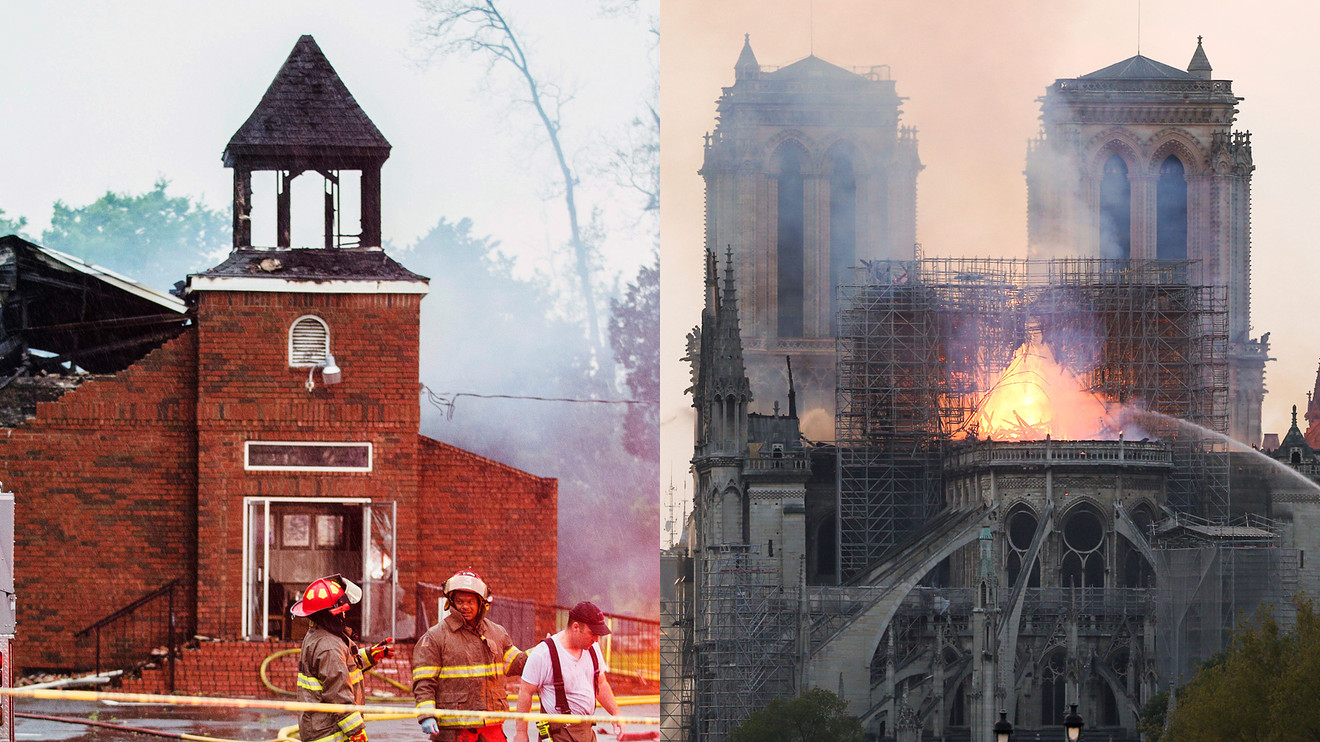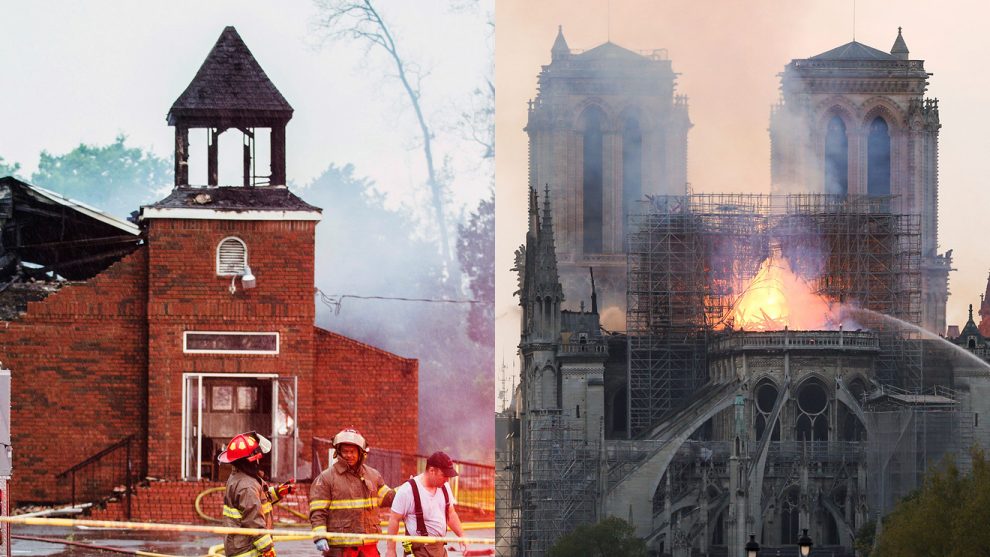
Cameras and cell phones chronicled Notre Dame’s inferno for the world, but they weren’t there when suspicious blazes recently tore into three historically black churches in rural Louisiana.
Now, people on social media have managed to spread the attention — and the wealth — of Notre Dame’s fast-growing rebuilding funds to the three St. Landry Parish churches, Mount Pleasant Baptist Church, St. Mary Baptist Church and Greater Union Baptist Church.
It seems to be working. By Wednesday morning, the Louisiana churches’ GoFundMe campaign had collected $1.2 million of its $1.8 million goal. On Tuesday afternoon, just before the Notre Dame fire broke out, it was around $300,000.
‘I guess in conjunction, they decided not to leave us out. It feels awesome.’
“After the Notre Dame fire, it appears our contributions also increased,” Freddie Jack, president of the Seventh District Baptist Association, told MarketWatch. “I guess in conjunction, they decided not to leave us out. It feels awesome.”
The churches were charred between late March and early April, and a 21-year-old white man, the son of a sheriff’s deputy, has been charged with arson and hate crime offenses. Suspect Holden Matthews has pleaded not guilty to all of the charges.
In Louisiana, all three buildings are beyond repair, each with insurance policies less than $500,000 that cannot cover the rebuilding costs, Jack said.
In France, the still-standing 856-year-old cathedral is owned and self-insured by the French State.
In both places, there will be a next act after the ashes.
Jack said the three Louisiana congregations have been praying for their doors to open again.
‘What God has done is open up the hearts of people. That is what you call a prayer being answered.’
“What God has done is open up the hearts of people. That is what you call a prayer being answered,” he told MarketWatch.
Though the Seventh District Baptist Association started its crowd-sourced fundraising campaign on April 10, the surge happened in the wake of the Notre Dame fire.
Writer Megan Romer said she was heartbroken by Notre Dame’s fire, but also noted on Twitter TWTR, -0.03% that the Catholic church is “one of the world’s wealthiest” entities. (Though many assumed the Catholic church owns Notre Dame, it’s actually the property of the French government.) “If you are going to donate money to rebuild a church this week, I implore you to make it the black churches in St. Landry Parish,” she wrote.
Journalist Yashar Ali also pointed out that Notre Dame’s rebuilding would be well-funded, and that the suspect in the Louisiana fires was accused of hate crimes. “[T]hese churches need your help,” Ali wrote. “Please join me in donating.”
So did Hillary Clinton.
It’s another example of internet-fueled philanthropy. It can net money for everything from stem cell therapies to heart transplant costs and beyond. Jack figured he’d give online fundraising a shot himself. “If you never try, you never know if you’ll succeed.”
Don’t Miss: Synagogue shooting sparks 1,000% increase in donations to Jewish groups
It’s also an example of the special pull that religious causes have for donors. Americans donated $410 billion overall to charity in 2017, according to Giving USA. Far and away, religious causes and organizations were the top recipients, bringing in $127.3 billion. Education-linked donations were second, at almost $59 billion.
Beware of scammers
The response to calamities can bring out the best in people, but it’s a regrettable fact that they can also bring out the worst.
Alan Brill, a senior managing director at Kroll’s Cyber Risk practice, said the Notre Dame fire would likely spur a handful of unscrupulous operations ready to take advantage of people’s generosity.
A key thing is knowing and researching the organization, he said. “If the site is run by an organization that you’ve never heard of — as opposed to a recognized charitable organization — it should raise doubts.”
If the site purports to be run “by a well-known charity but doesn’t seem to be associated with that charity’s main website, you should be suspicious. If in doubt, call the charity, but only on a number you took from the charity’s main website. A fraudulent website can have a phone number that will go directly to the fraudsters. Don’t fall for it.”
A GoFundMe spokesman told MarketWatch that hundreds of campaigns to rebuild Notre Dame had been launched since Monday’s fire.
“We are in full control of funds until we are absolutely sure that they will get to the right place,” said spokesman Bobby Whithorne. We will be working with authorities in France to make sure funds flow smoothly into the rebuilding effort.”
Get a daily roundup of the top reads in personal finance delivered to your inbox. Subscribe to MarketWatch’s free Personal Finance Daily newsletter. Sign up here.










